Improving access to water in Solomon Islands' schools
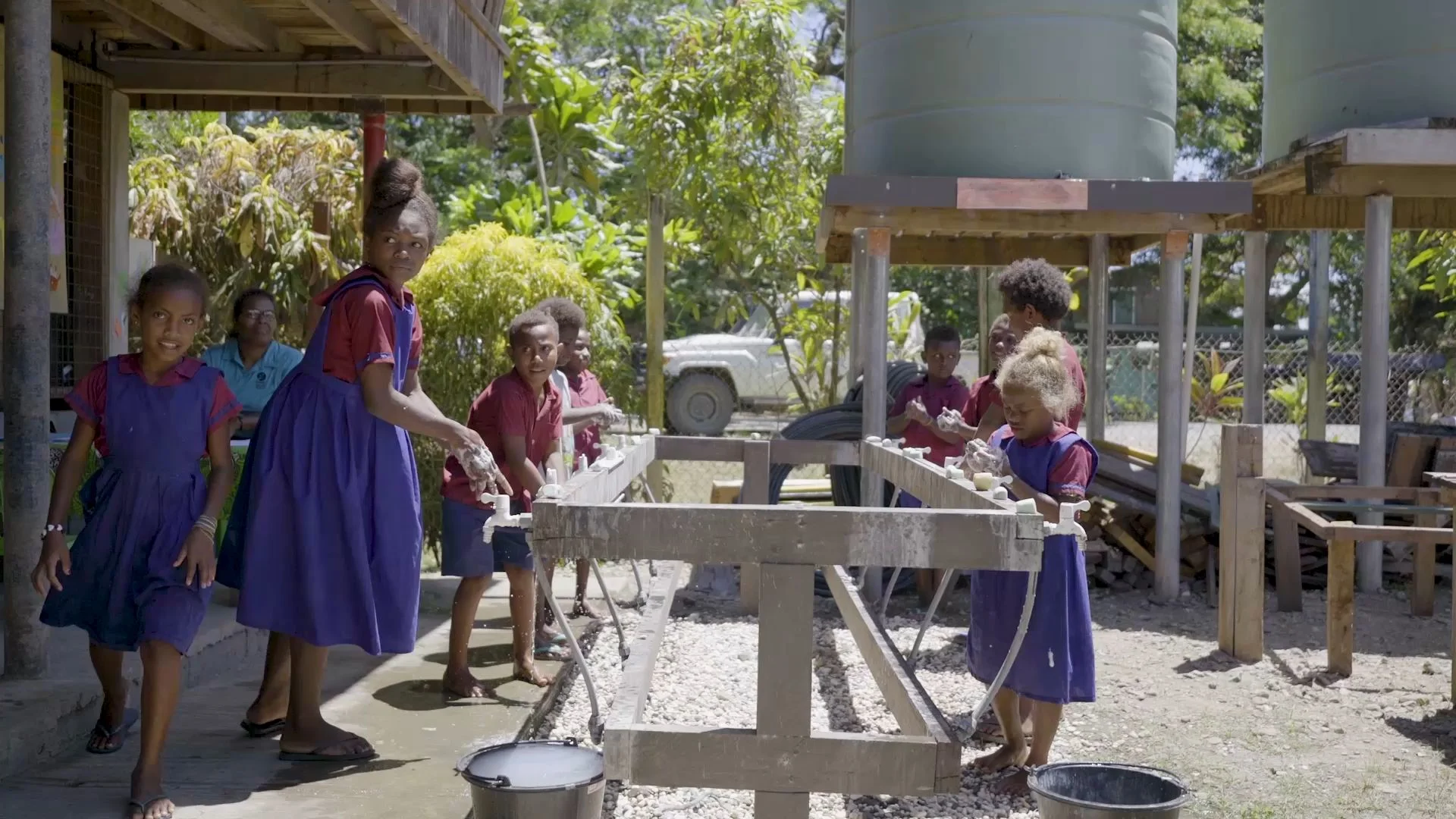
“I wash my hands at the handwashing station. I use soap to wash my hands. I first wet it, then I soap it, scrub it, wash it again, then dry it.”
It sounds simple, but the handwashing process explained by 13-year-old Evita from Guadalcanal Province in Solomon Islands has not been commonplace in her school. In the past, a lack of water has even led to her school being closed and Evita being sent home.
“There was no water, so we didn’t continue with opening the school, we sent the children home. The toilet needs water, drinking, handwashing and everything needs water but there was no more water”, explains Head Teacher Stephanie Biliki.
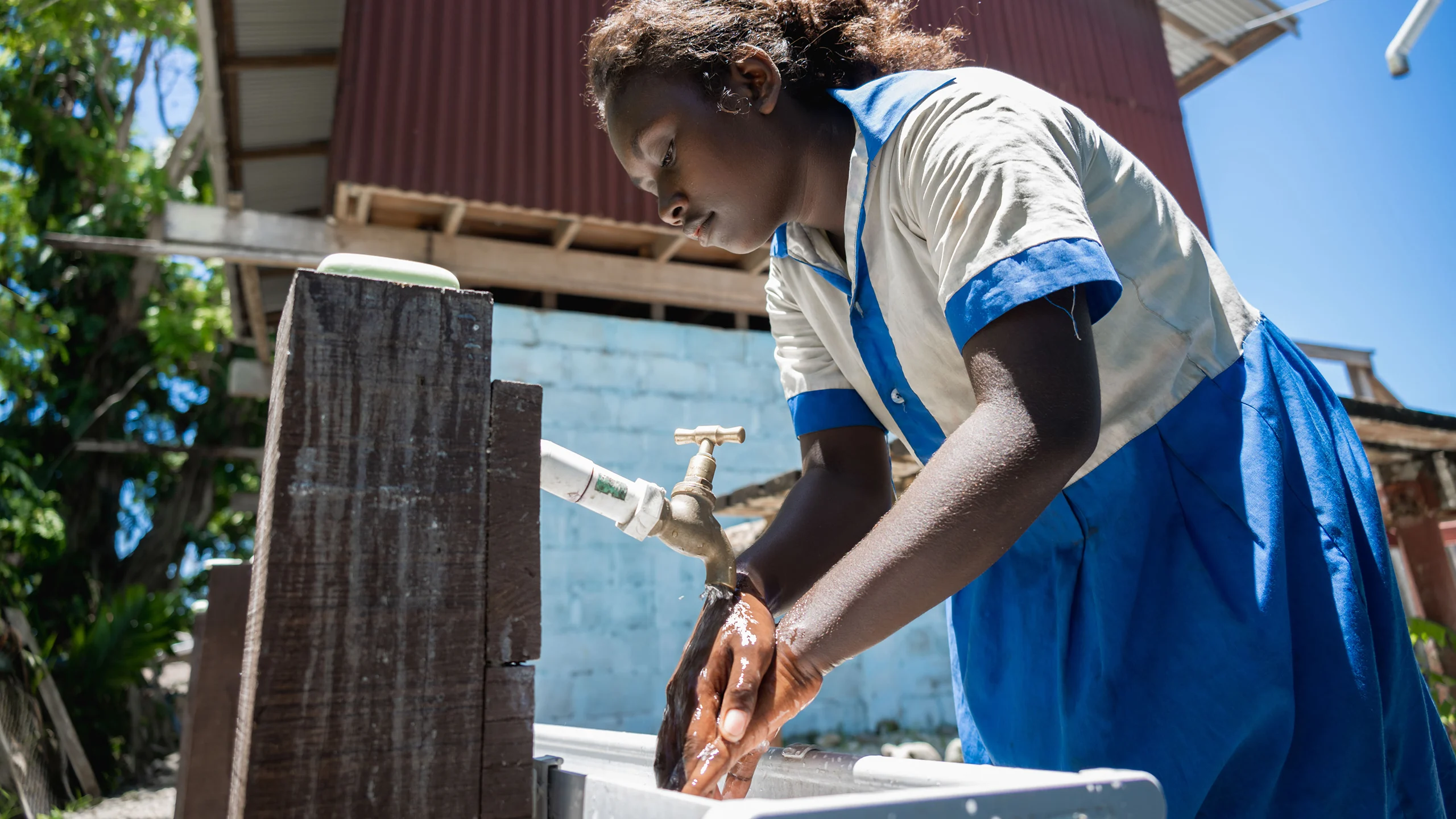
March 22 marks World Water Day, with the theme in 2023 being Accelerating Change. The world is currently well behind targets to meet the Sustainable Development Goal of water and sanitation for all by 2030, with many people around the world still lacking basic WASH (water, sanitation and hygiene) services.
This includes Solomon Islands, which has some of the most challenging WASH statistics in the world. According to the latest UN Water statistics, 64% of schools in Solomon Islands have no or limited access to drinking water, 63% have no sanitation facilities and 75% lack any access to hygiene services.
Our Emergency Hygiene Kit Gift of Hope helps reduce the risk of water-borne diseases by providing children with the hygiene essentials they need to not just survive but thrive.
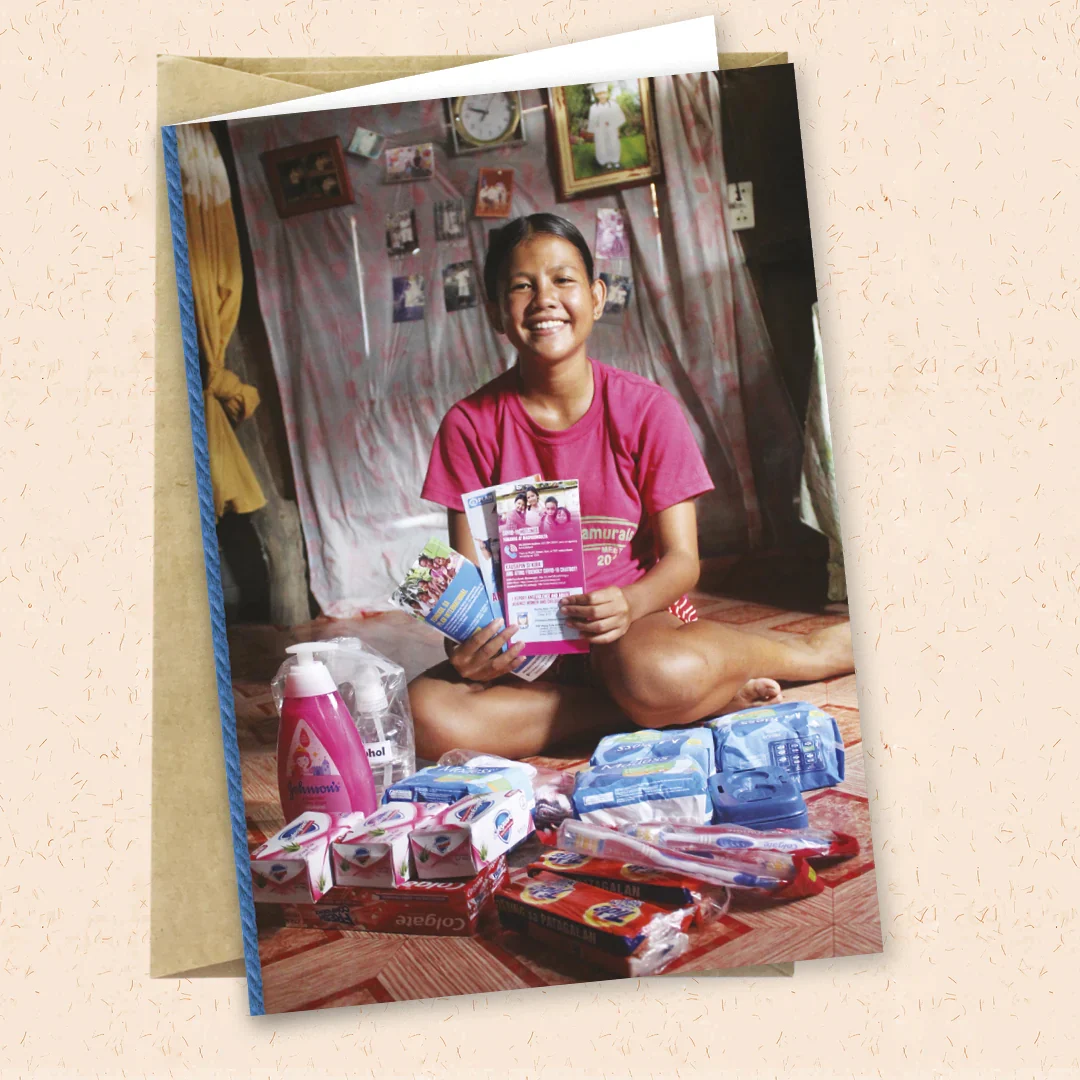
Through the Australian Government’s Water for Women program, Plan International and our partner Live & Learn Environmental Education are working in Solomon Islands’ Guadalcanal Province to support improved WASH facilities in rural communities and health clinics and strengthen WASH outcomes in schools. The initial New Times, New Targets project ran from 2018 to 2022 and has recently been extended for a further two years.
Head Teacher Stephanie has noticed big changes at her Primary School.
“Live & Learn came and improved the water supply system. The existing one wasn’t working properly, so they came and improved it. They provide tanks used to collect rainwater. Also, standpipes and improvement of the ablution block. We have showers in there for the girls to use.”
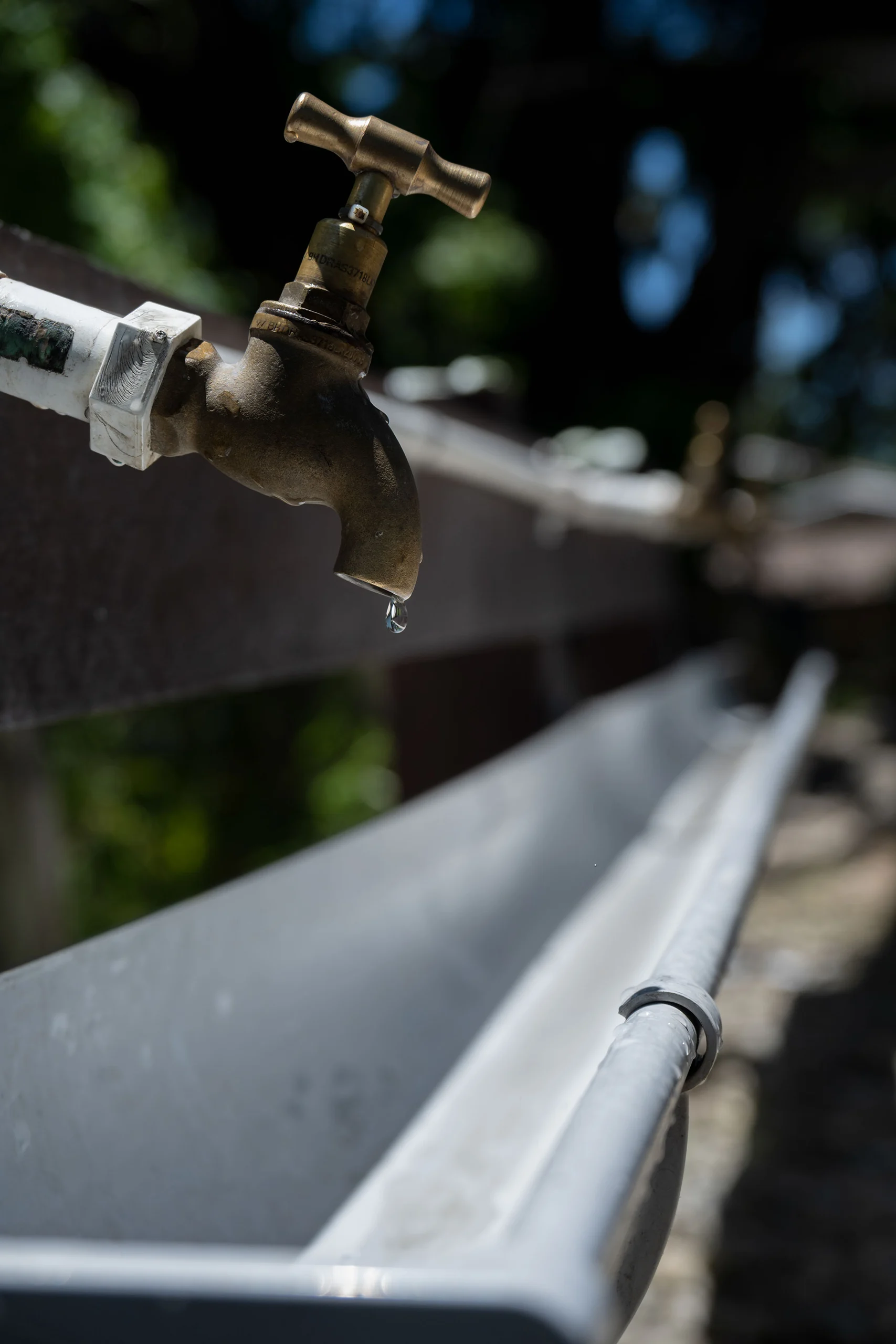
The effect on school attendance has been dramatic. “It encourages the students to come to school because at home, some places don’t have a proper toilet or proper water supply, so they enjoy coming to school now every day.”
Alongside the improvements to WASH infrastructure, Plan International and Live & Learn has been conducting training and awareness raising on the importance of handwashing and menstrual health and hygiene. “They learn these things through art. They do drawing, colouring, and discussions. This helps them to grasp knowledge especially looking into handwashing and other hygienic practices.” explains Stephanie.
Menstrual health and hygiene classes have particularly impressed teacher Maria Gau, who has seen more girls in her class as a result. “When girls started to menstruate, the students would stay home. But since the awareness and facilities to support our girls in school, it helped them understand that it is part of life, and they can continue with their learning. As well as boys. They always accept it. And no more bullying or teasing of girls.”
The new facilities and training have seen handwashing adopted as a daily routine, and Stephanie is proud of the school’s achievements.
“The projects, they have really boosted the learning for the school community. The changes in the children are noticed; their hygiene, they look clean, neat and smart because these things are available here.”
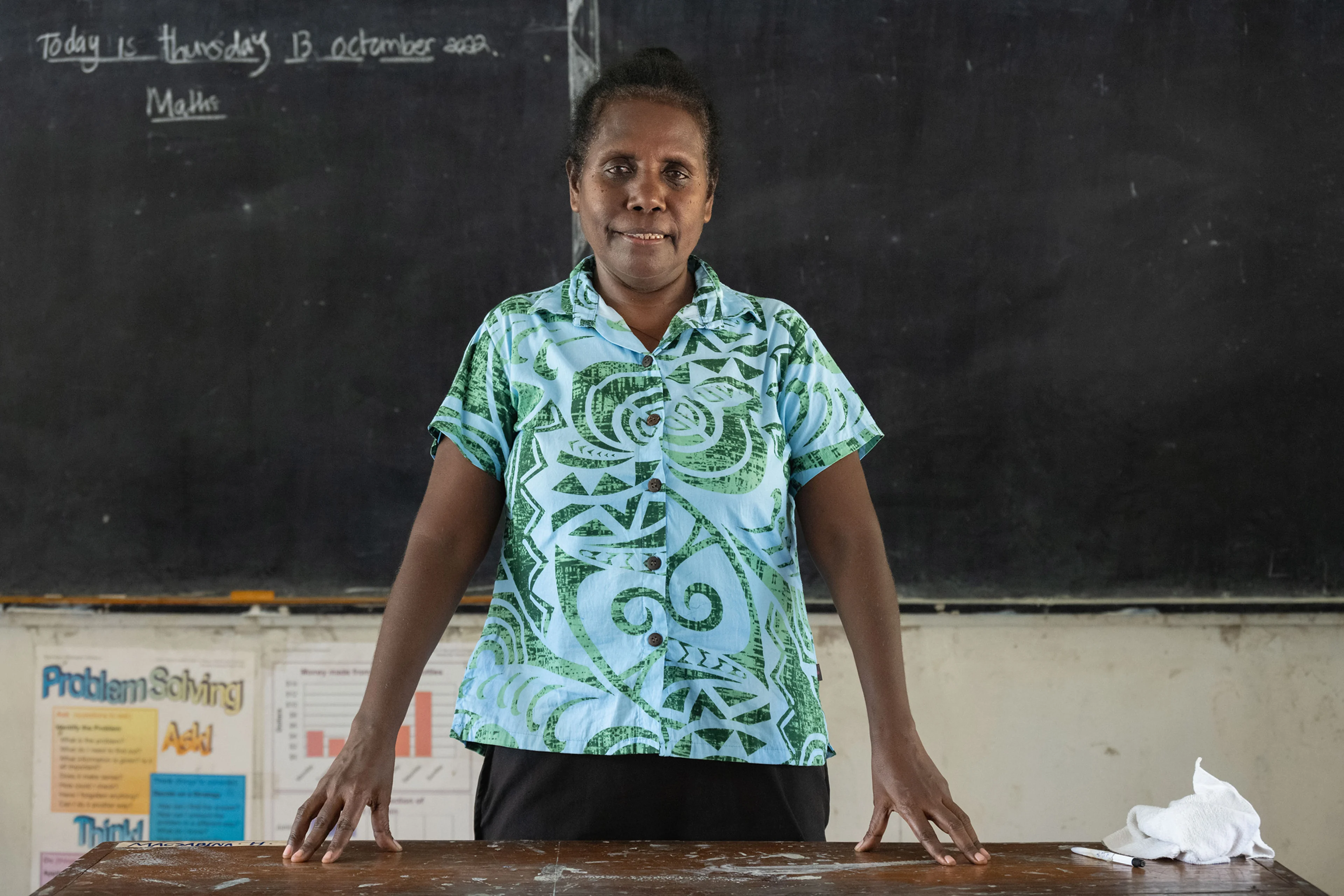
But for Evita, it is really only about one thing. “I enjoy playing games with my friends. I also enjoy washing my hands at the WASH station.”
New Times, New Targets is an Australian aid initiative implemented by Plan International Australia with Live and Learn Environmental Education on behalf of the Australian Government’s Water for Women Fund.

Learn more about our work in Water, Sanitation and Hygiene (WASH).

